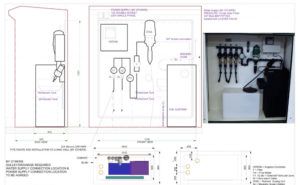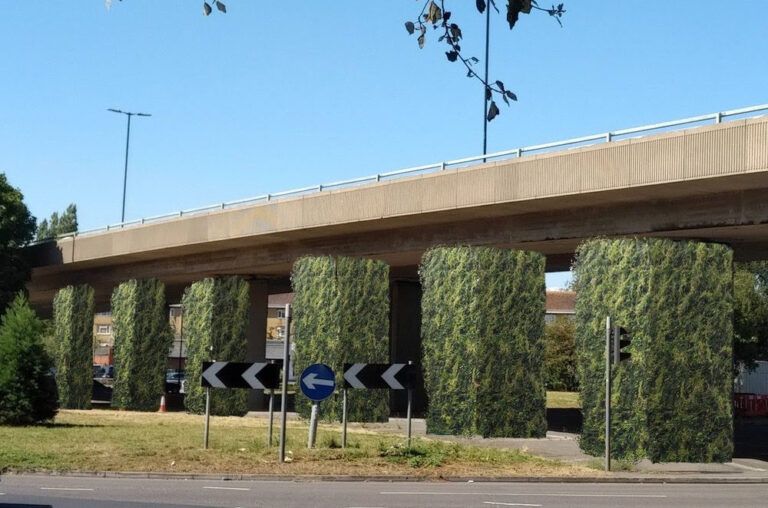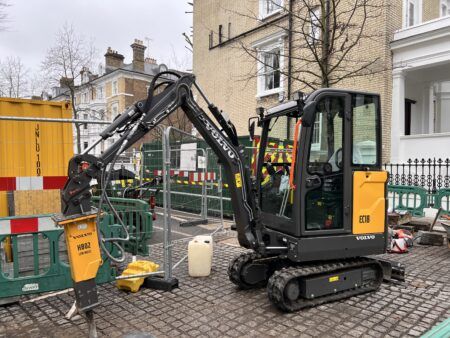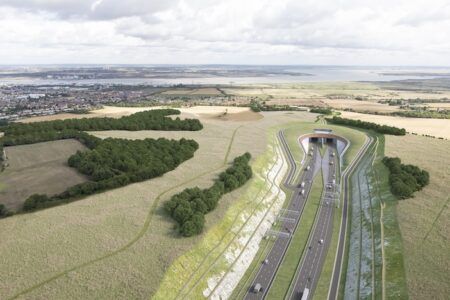International infrastructure group Balfour Beatty’s Living Places division and green infrastructure experts, Biotecture, are set to deliver a UK first on behalf of Southampton City Council, as works to install the first hydroponic living wall on a highways scheme commenced this summer.
Hydroponic living walls are sustainable, vertical installations containing living plants and foliage that grow without the need for soil. Offering many benefits to the public and the environment, these green and living structures help to remove air pollutants through the absorption of gases such as Carbon Dioxide (CO2), Sulphur Dioxide (SO2) and Nitrogen Dioxide (NO2), as well as hazardous particulate matter (PM). Forming part of the newly reconstructed Millbrook Roundabout that Balfour Beatty Living Places successfully completed ahead of schedule earlier this year, the company will now install the foundations and 20 feet (6m) high steel frame, while Biotecture will design and position the hydroponic living wall.
Balfour Beatty’s Living Places division works in long-term partnerships with local authorities to create sustainable places to live, work and play. The company’s current UK projects include a £24m (US$29m) per annum highways maintenance contract with Warwickshire County Council, and a £10.6m (US$13m) per annum highways services contract with Southampton City Council. The company also has highways street lighting PFI (Private Finance Initiative) contracts with Coventry City Council, Sunderland City Council, and South Tyneside MB Council worth a total of £450m (US$548m).
Biotecture’s patented, hydroponic living wall system has been used in many large-scale projects including corporate/retail, airports/stations, highways, universities, car parks, leisure and hospitality installations. The company’s standard panels complete with plants sit on pre-fixed T section recycled aluminum rails which in turn are fixed to a cement particle backing board through the drainage void former material. This ensures that there is no chance of any moisture tracking back to the rest of the structure.
“We are incredibly proud to be working with Southampton City Council and Biotecture on this flagship project; a first in the UK. This is a project which has the potential to transform the way we sustainably deliver highways schemes across the industry,” commented Balfour Beatty Living Places managing director, Steve Helliwell. “Sustainability is at the heart of what we do and in the solutions we provide to our customers. Through this project, we will not only improve air quality for local residents, but improve the aesthetic of the roundabout for the travelling public and the wider community in Southampton.”
Richard Sabin, Biotecture’s managing director, said, “Yet to be seen on the UK road network, the Millbrook green columns are evocative of the Via Verde highway pillars in Mexico City, and they’ll help with air pollution reduction. We are very excited to be working on this flagship scheme in Southampton.”
Southampton’s cabinet member for transport, Jacqui Rayment, added, “The Living Wall project at Millbrook Roundabout is the first of its kind in the UK. It’s an exciting way to make our public spaces more attractive whilst at the same time having a beneficial effect on the environment.”





